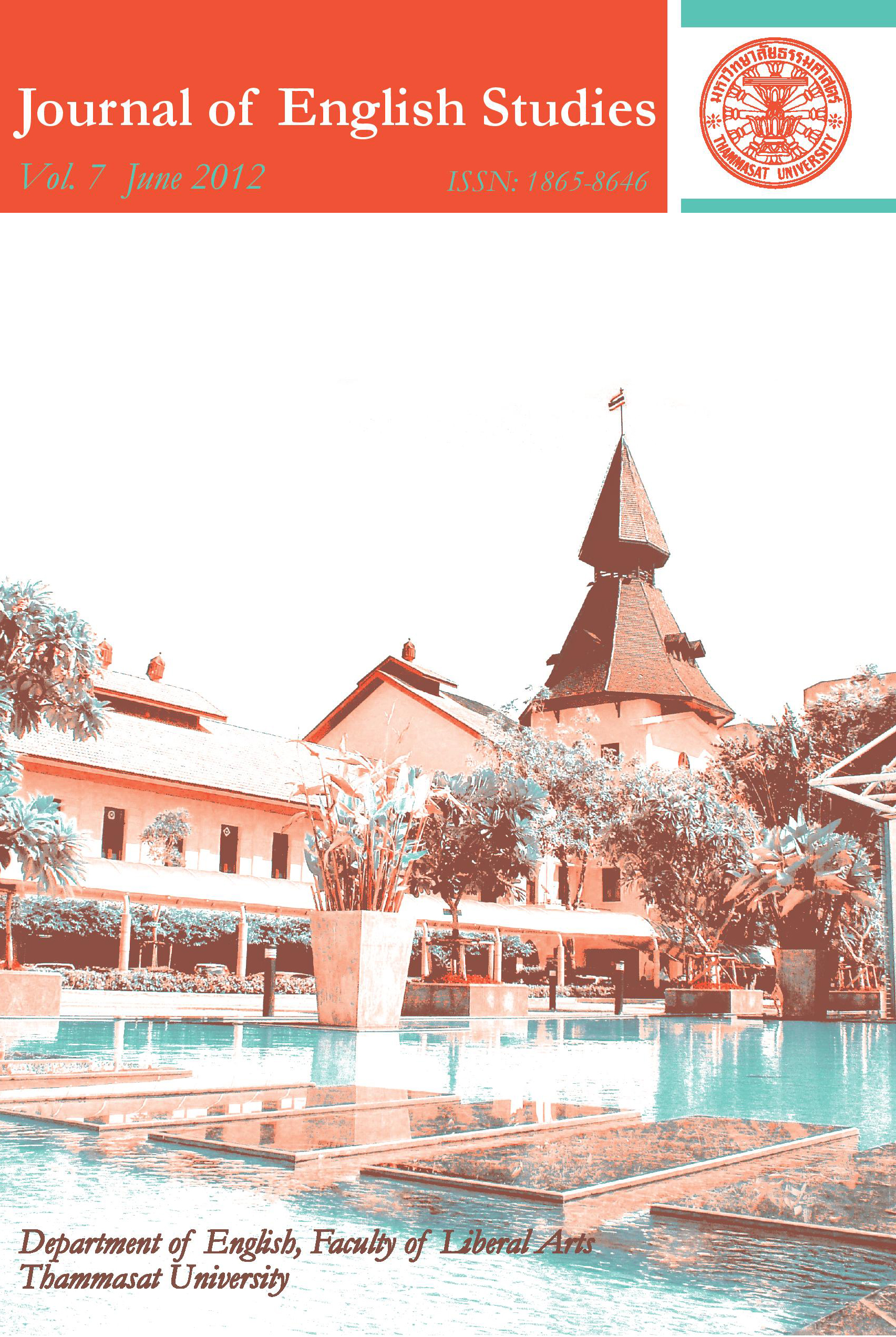Thai tertiary English majors’ attitudes towards and awareness of world Englishes
Main Article Content
Abstract
The purposes of the present study were to investigate Thai university English learners’ attitudes towards and awareness of varieties of English, in relation to the ideology of English as an international language, which sees English in its pluralistic rather than the monolithic nature. The results show that the learners held more favorable attitudes towards mainstream inner-circle Englishes (American English and British English) than nonnative Englishes. In detail, the inner-circle speakers were perceived to possess better attributes (e.g., status, competence and personality) than nonnative speakers. The findings suggest that the English learners, in the present study, were linguistically prejudiced as they stereotyped others based on accent. In terms of accent awareness, the learners did not have sufficient awareness of varieties of English since the majority of them failed to identify the speakers’ country of origin from the speakers’ voices. It was found that the Thai English voice was the only stimulus that was successfully recognized by half of the informants, whereas the other varieties were inappropriately identified. This paper ends with proposing pedagogical suggestions and implications in raising learners’ awareness of the changing contexts of English so that they become more tolerant towards linguistic diversity.
Keywords: Language attitudes, EIL, accent, linguistic discrimination, World Englishes


